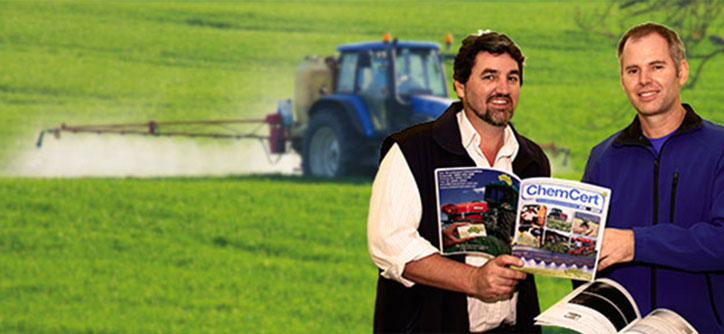ChemCert has designed this guide to provide resellers with a reference tool when selling phenoxy herbicides. Since phenoxy herbicides can cause significant damage to sensitive crops, like cotton plants and grapevines, it is important to be able to control the risks of vapour drift and other threats caused by these pesticides. By informing people how to apply these herbicides safely, we can all assist to minimise any off-target damage.
The APVMA has suspended phenoxy herbicides containing the highly volatile ester formulations of 2, 4-D with 800g/L of the active constituent. For the remaining phenoxy herbicides that are available, the APVMA has placed mandatory spray drift restraints on these products to minimise damage to other crops. These restraints include using a minimum “Coarse” spray quality and having mandatory no-spray zones in place between the target area and people, livestock and sensitive areas. There are also specified wind speeds and warnings to not spray during surface temperature inversions.
Please use this guide to help explain to growers some of the basic issues around the application of phenoxy herbicides. We have used Amicide Advanced 700 as an example of a recently released, non-volatile, 2, 4-D herbicide to highlight the label restrictions on phenoxy herbicide use. By all working together, we can ensure continued access to these important chemicals.
ChemCert is committed to working with all industry groups involved with AgVet chemicals to develop innovative training resources and best practice management guidelines for chemical users. We hope that you find this guide a useful tool when explaining phenoxy herbicides to your customers and we thank you for continued support of ChemCert.
Phenoxy herbicides include a large group of weedkillers with actives such as:
2,4-D (Actril DS®*, Amicide®, Pyresta®*), 2,4-DB (Trifolamine®), dichlorprop (Lantana 600®), MCPA (Agtryne® MA*, Banvel M®*, Barrel®*, Basagran® M60*, Buctril® MA*, Chipco Spearhead®*, Conclude®*, Flight®*, MCPA, Midas®*, Paragon®*, Precept®*, Tigrex®*, Tordon 242®*), MCPB (Legumine®), mecoprop (Mecoban®, Mecopropamine®, Methar Tri‑Kombi®*)
Download the guide .




